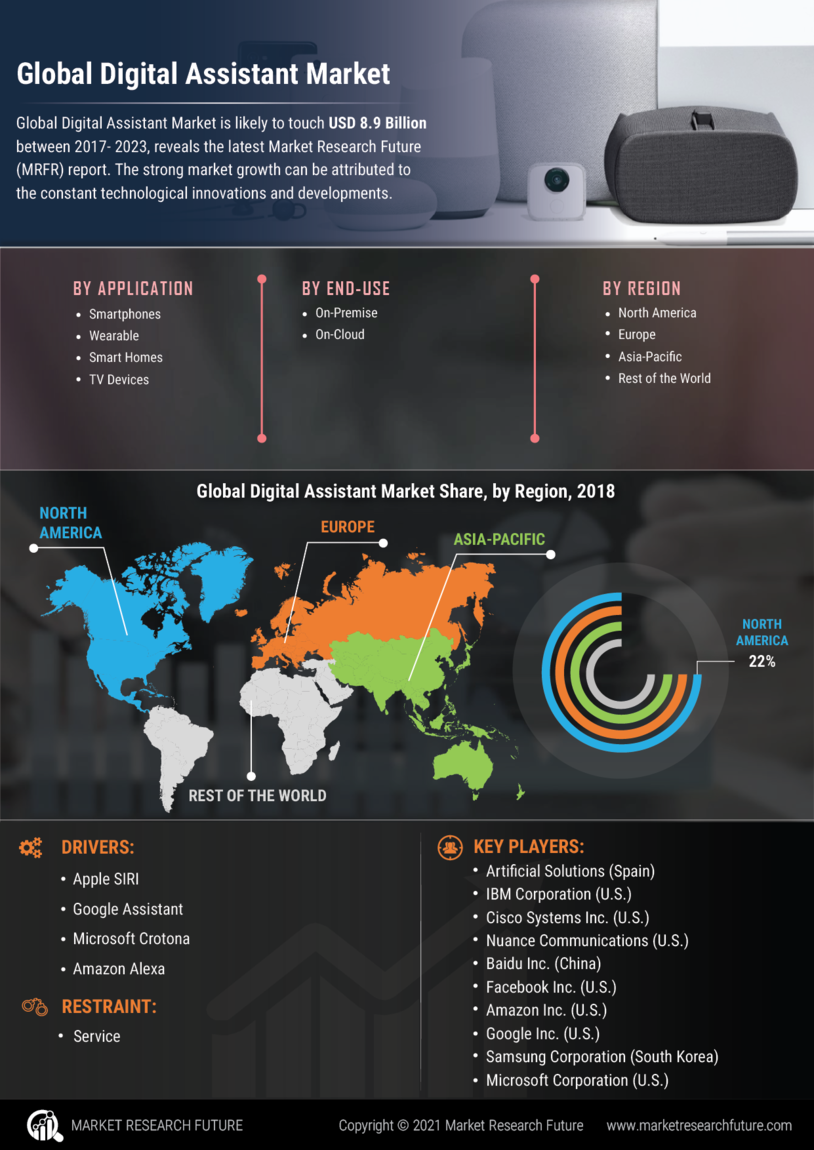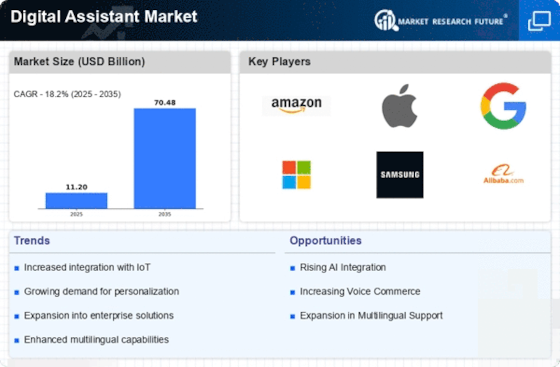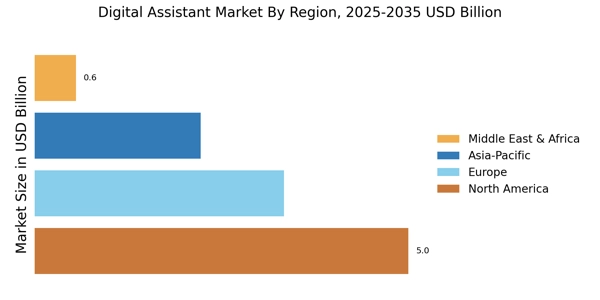Expansion of Smart Home Ecosystem
The Digital Assistant Market is significantly influenced by the expansion of the smart home ecosystem. As more households adopt smart devices, the integration of digital assistants into these systems becomes increasingly prevalent. Data suggests that the number of smart home devices is expected to reach impressive milestones, creating a fertile ground for digital assistants to thrive. This integration allows users to control various aspects of their homes, from lighting to security, through voice commands. As a result, the Digital Assistant Market is likely to witness accelerated growth as consumers seek seamless connectivity and convenience in their daily lives.
Increased Focus on Customer Experience
In the Digital Assistant Market, there is a marked emphasis on enhancing customer experience. Companies are recognizing the importance of providing personalized and efficient interactions through digital assistants. Research indicates that businesses leveraging digital assistants can improve customer satisfaction rates significantly. By utilizing data analytics and machine learning, these assistants can offer tailored recommendations and support, thereby fostering customer loyalty. This focus on customer experience is driving organizations to invest in advanced digital assistant technologies, which in turn propels growth within the Digital Assistant Market.
Growing Importance of Multilingual Support
The Digital Assistant Market is increasingly recognizing the growing importance of multilingual support. As businesses expand their reach across diverse markets, the need for digital assistants that can communicate in multiple languages becomes paramount. Data suggests that a significant portion of consumers prefers using digital assistants in their native languages, which drives companies to invest in multilingual capabilities. This trend not only enhances user satisfaction but also broadens the potential customer base for digital assistant technologies. Consequently, the emphasis on multilingual support is likely to play a crucial role in shaping the future of the Digital Assistant Market.
Rising Demand for Voice-Activated Technology
The Digital Assistant Market experiences a notable surge in demand for voice-activated technology. As consumers increasingly prefer hands-free interactions, the adoption of voice-activated digital assistants is on the rise. According to recent data, the market for voice recognition technology is projected to reach substantial figures, indicating a growing acceptance among users. This trend is further fueled by advancements in natural language processing and machine learning, which enhance the accuracy and efficiency of voice commands. Consequently, businesses are investing in developing sophisticated voice-activated solutions to cater to this demand, thereby driving growth within the Digital Assistant Market.
Adoption of AI and Machine Learning Technologies
The Digital Assistant Market is witnessing a transformative shift due to the adoption of artificial intelligence and machine learning technologies. These advancements enable digital assistants to learn from user interactions, improving their functionality and responsiveness over time. Market data reveals that investments in AI technologies are expected to grow substantially, indicating a strong commitment from companies to enhance their digital assistant offerings. This integration of AI not only enhances the user experience but also allows for more complex tasks to be performed, thereby expanding the capabilities of digital assistants within the Digital Assistant Market.

















